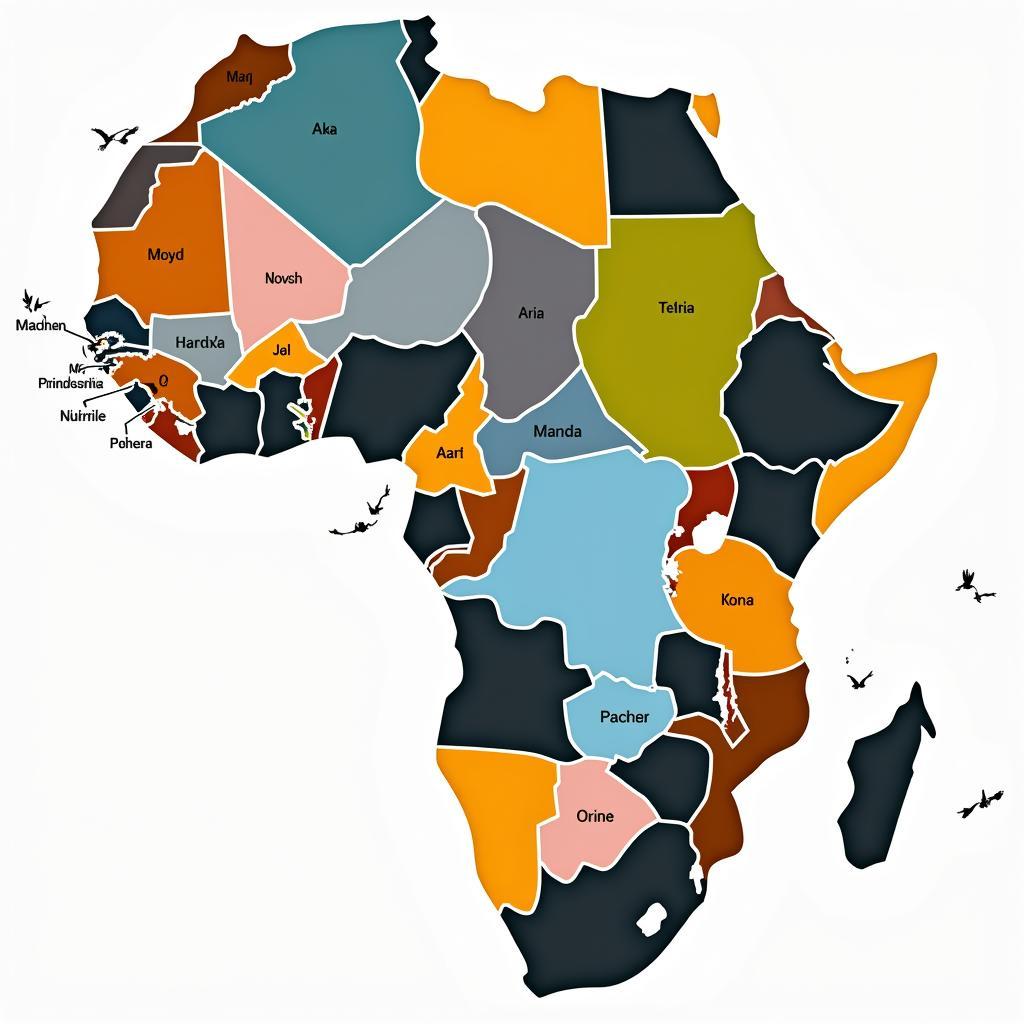Unveiling the History and Cultural Significance of African Foot Worship
The concept of “African Foot Worship” might seem strange and unfamiliar to many. This phrase, often encountered on the internet, can be misleading and doesn’t accurately reflect any widespread cultural practice in Africa. Africa is a vast continent with a diverse tapestry of cultures, traditions, and beliefs, so it’s important to approach this topic with sensitivity and a nuanced understanding.
Deconstructing the Myth of “African Foot Worship”
There is no evidence to suggest that foot worship, in the literal sense, is a common or accepted practice in any African culture. The idea of “African foot worship” likely stems from a combination of factors, including:
- Misinterpretations of cultural practices: Some African cultures have rituals or customs that involve the feet but are not related to worship. For example, washing the feet of guests is a sign of hospitality in some communities.
- Sensationalism and exoticism: The portrayal of Africa in media often relies on stereotypes and exaggerations, leading to misconceptions about cultural practices.
- Fetishization of African cultures: The hypersexualization of African bodies and cultures can contribute to the spread of harmful stereotypes, including the notion of “foot worship”.
It’s crucial to recognize that attributing a specific practice to an entire continent is not only inaccurate but also reinforces harmful stereotypes.
Respecting Cultural Diversity and Challenging Misinformation
While “foot worship” is not a recognized practice in Africa, it’s essential to approach discussions about African cultures with respect and a commitment to understanding. Here are some key points to consider:
- Diversity is key: Africa is home to thousands of ethnic groups, each with its unique customs and traditions. Avoid generalizations and recognize the vast cultural tapestry within the continent.
- Seek credible sources: Rely on reputable academic sources, cultural institutions, and first-hand accounts from people of African descent when learning about African cultures.
- Challenge stereotypes: Be critical of information that reinforces harmful stereotypes or presents a monolithic view of Africa.
By engaging with African cultures in a respectful and informed manner, we can move beyond harmful misconceptions and appreciate the richness and complexity of the continent’s traditions.
Exploring Authentic African Traditions and Beliefs
Instead of focusing on misleading concepts like “foot worship,” let’s delve into the genuine beauty and diversity of African cultures. From vibrant music and dance traditions to intricate art forms and profound spiritual beliefs, Africa offers a wealth of cultural riches to explore. Consider these areas of interest:
- African music: Explore the rhythmic beats of Afrobeat, the soulful melodies of Highlife, or the polyphonic harmonies of traditional choral music. Check out contemporary folk music artists for a modern take on traditional sounds.
- African art: Immerse yourself in the vibrant colors and bold patterns of African textiles, the intricate carvings of wooden masks, or the powerful symbolism of bronze sculptures. Discover the beauty of the African human silhouette as depicted in various art forms.
- African spirituality: Learn about the diverse religious beliefs across the continent, from indigenous religions that emphasize ancestor veneration to the significant presence of Christianity and Islam.
By engaging with these authentic expressions of African culture, we can gain a deeper appreciation for the continent’s rich heritage.
Conclusion
The notion of “African foot worship” is a misconception that reflects a broader issue of misinformation and stereotyping surrounding African cultures. Let’s move beyond such harmful generalizations and embrace the opportunity to learn about the true diversity, beauty, and complexity of Africa’s cultural tapestry. By approaching these discussions with respect, sensitivity, and a commitment to accuracy, we can foster greater understanding and appreciation for the richness of African traditions.
Frequently Asked Questions
1. Are there any African cultures that practice foot massage as a sign of respect?
Yes, in some African cultures, foot massage is a traditional practice offered as a gesture of hospitality and respect, particularly for elders or guests.
2. What are some reliable resources for learning about African cultures?
Reputable museums, academic journals, and organizations dedicated to African studies are excellent resources.
3. How can I be more respectful when discussing African cultures?
Avoid generalizations, use accurate terminology, and seek out perspectives from people of African descent.
4. What are some common misconceptions about Africa?
Common misconceptions include portraying Africa as a homogenous entity, exaggerating poverty and conflict, and ignoring the continent’s rich history and achievements.
5. How can I help challenge stereotypes about Africa?
Educate yourself and others, support African artists and creators, and amplify authentic African voices.
We encourage you to explore other fascinating articles on our website about African music, art, and culture to learn more. For any assistance, feel free to contact us at +255768904061, email us at kaka.mag@gmail.com, or visit our office in Mbarali DC Mawindi, Kangaga, Tanzania. We are available 24/7 to assist you.

